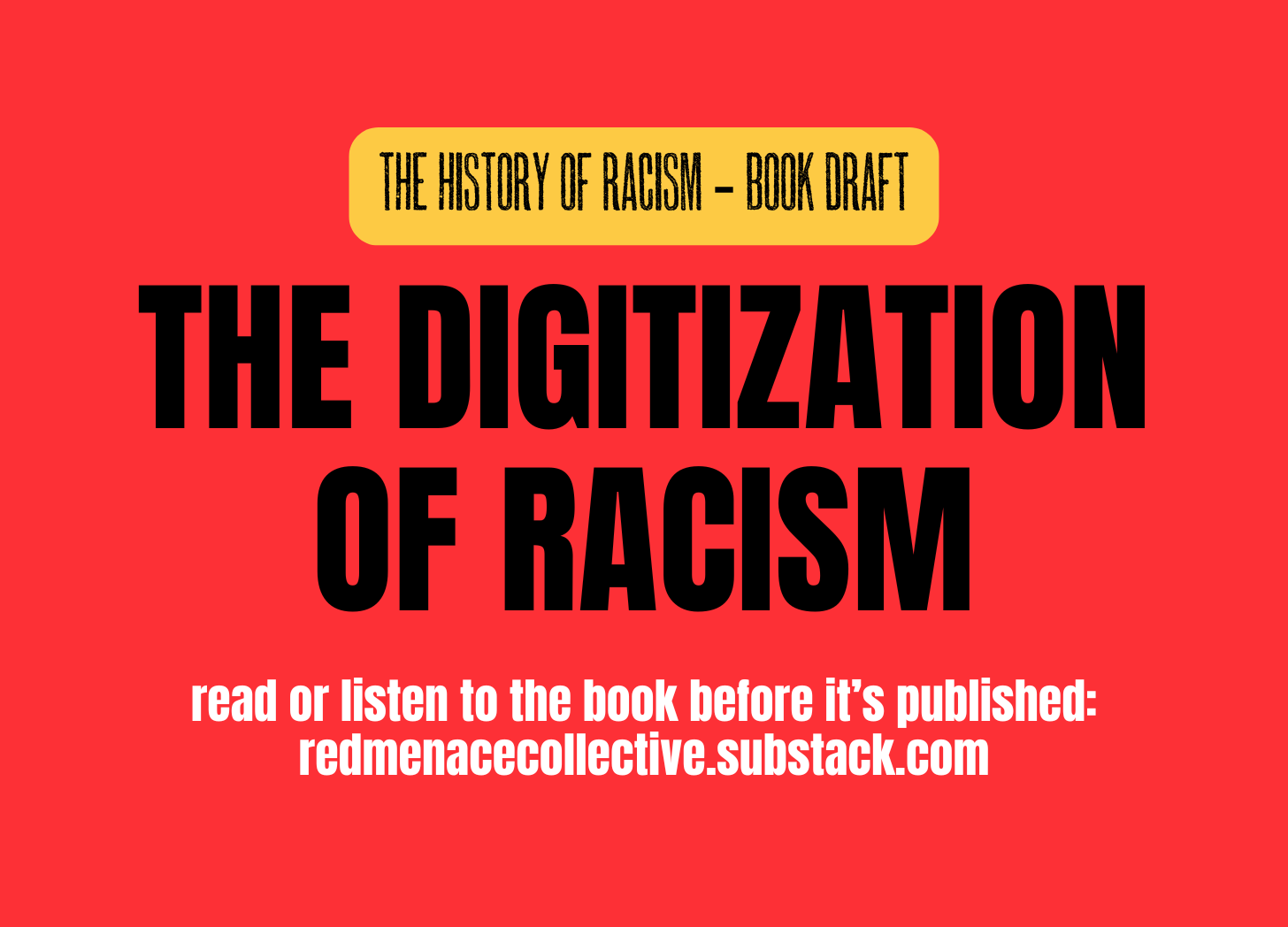The Digitization of Racism
A little side project exploring the origin and evolution of the term "racism" from inception to modern day.
Dive into the origins and evolution of one of the most charged words in history—racism. This side project explores how the term was born, its transformation through ideological and political struggles, and its journey from a concept critiquing oppression to a weapon in modern-day cultural battles, unpacking how "racism" became a driver for leftist ideologies and societal shifts. It's a bold, unapologetic look at the word that reshaped public discourse, from inception to now.
This project will become a short book when it’s done.
Subscribers to The Red Menace Collective will receive a free digital copy of the book and be able to follow along with draft chapters as the book is written.
This is the sixth chapter in the book, which looks at the explosion of anti-racism in the 2000s.
The Digitization of Racism
The Internet fundamentally transformed discussions about race in the 2000s.
What had once been niche academic discussions about systemic racism and implicit bias were suddenly front and center, amplified by the advent of social media. Conversations that were once confined to university lecture halls and activist meetings now spilled out into the public sphere, reaching millions in real-time. This era planted the seeds for what would later become an all-encompassing cultural force: the explosion of racism narratives in the digital age.
In the early 2000s, online forums, blogs, and independent news sites began engaging in discussions about racial disparities, but it was the rise of platforms like Facebook (founded in 2004) and Twitter (launched in 2006) that accelerated digital activism. What once required physical gatherings, pamphlets, and phone trees could now be accomplished in seconds with a single post. The viral nature of social media allowed systemic racism narratives to spread far and wide, transforming personal anecdotes into rallying cries.
Hashtags became pivotal in mobilizing individuals around various causes. As Clay Shirky, a white American technology writer and professor at New York University, noted in his book "Here Comes Everybody" (2008):
The internet lowers the cost of group action, making it easier for movements to organize but also more susceptible to rapid collapse under scrutiny.
By the late 2000s, digital platforms had fundamentally reshaped racial discourse. A study by The Pew Research Center in 2009 found that:
News coverage of race-related issues spiked significantly following key political and social events, reflecting a growing public awareness and concern.
Continue below the paywall to access the full chapter.
Keep reading with a 7-day free trial
Subscribe to The Red Menace Collective to keep reading this post and get 7 days of free access to the full post archives.





